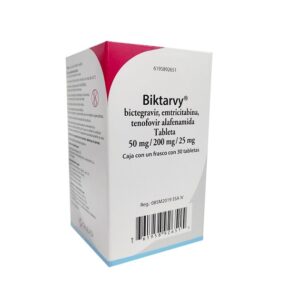Becoming a mother is a life-changing experience, filled with both joy and challenges. While many women anticipate happiness after childbirth, the reality can sometimes include emotional struggles such as sadness, anxiety, and feelings of overwhelm. For some, these challenges develop into postpartum depression (PPD), a serious mental health condition that affects mothers, babies, and families.
A postpartum depression therapist plays a crucial role in supporting maternal mental wellness, providing professional guidance, emotional support, and coping strategies to help mothers navigate this challenging period. This article explores the vital role these therapists play in promoting mental wellness, improving quality of life, and supporting healthy mother-baby relationships.
Understanding Postpartum Depression
Postpartum depression is more than temporary sadness or “baby blues.” Symptoms often last beyond the initial weeks after childbirth and can significantly interfere with a mother’s daily life and well-being.
Common Symptoms Include:
-
Persistent sadness or emptiness
-
Anxiety, worry, or panic attacks
-
Difficulty bonding with the baby
-
Irritability, anger, or mood swings
-
Fatigue and low energy
-
Changes in appetite or sleep patterns
-
Withdrawal from family and friends
-
Feelings of guilt, inadequacy, or self-doubt
If these symptoms persist, seeking support from a postpartum depression therapist is essential for mental wellness and overall recovery.
The Importance of Mental Wellness in the Postpartum Period
Mental wellness during the postpartum period is essential for:
-
Mother’s Health: Unmanaged depression or anxiety can lead to long-term mental health issues, impacting overall quality of life.
-
Mother-Baby Bonding: Emotional well-being is critical for forming a secure attachment with the baby.
-
Family Dynamics: Maternal mental health affects relationships with partners and other family members.
-
Daily Functioning: PPD can interfere with self-care, work, and parenting responsibilities.
A postpartum depression therapist works to ensure mothers maintain mental wellness, improving outcomes for both themselves and their families.
How a Postpartum Depression Therapist Supports Mental Wellness
Therapists trained in maternal mental health use a variety of strategies to promote emotional well-being and resilience in new mothers.
1. Providing Emotional Support
Therapists create a safe, non-judgmental space where mothers can openly express feelings of sadness, anxiety, or guilt. Emotional validation is a powerful tool in recovery and fosters a sense of understanding and connection.
2. Identifying Triggers and Patterns
Postpartum depression may stem from multiple factors, including hormonal changes, sleep deprivation, relationship stress, or past trauma. A postpartum depression therapist helps mothers recognize and address these underlying causes, improving emotional regulation and mental clarity.
3. Teaching Coping Strategies
Therapists equip mothers with evidence-based tools to manage depression and anxiety, including:
-
Cognitive-behavioral techniques to challenge negative thoughts
-
Mindfulness and relaxation exercises
-
Stress management strategies
-
Grounding techniques to reduce anxiety
4. Strengthening Mother-Baby Bonding
PPD can make bonding with a newborn challenging. Therapists guide mothers in reconnecting with their babies, promoting emotional attachment and fostering healthy early development.
5. Supporting Relationships
Therapists often work with partners or family members to improve communication, share caregiving responsibilities, and create a supportive home environment.
6. Building Long-Term Resilience
Beyond immediate recovery, therapy helps mothers develop skills to handle future stressors, promoting sustained mental wellness and emotional balance.
Types of Therapy Offered
A postpartum depression therapist may use one or more approaches tailored to the mother’s needs:
-
Cognitive Behavioral Therapy (CBT): Focuses on changing negative thought patterns and behaviors.
-
Interpersonal Therapy (IPT): Improves communication and resolves relationship challenges.
-
Group Therapy: Provides peer support and reduces feelings of isolation.
-
Couples Therapy: Strengthens partnerships and family dynamics.
-
Online Therapy: Offers flexible access for mothers with busy schedules or limited mobility.
Signs That You May Need a Postpartum Depression Therapist
Mothers should consider seeking professional support if they experience:
-
Persistent sadness or anxiety beyond two weeks postpartum
-
Difficulty bonding with the baby
-
Overwhelming feelings of guilt or inadequacy
-
Withdrawal from friends or family
-
Inability to perform daily tasks
-
Thoughts of self-harm or harming the baby (seek immediate help)
Early intervention improves recovery outcomes and prevents symptoms from worsening.
Practical Tips for Supporting Mental Wellness
In addition to therapy, mothers can adopt daily practices to support emotional health:
-
Prioritize Sleep: Accept help from family or partners and rest whenever possible.
-
Balanced Nutrition: Proper diet supports mood and energy.
-
Physical Activity: Gentle exercise releases endorphins and improves overall well-being.
-
Social Connection: Stay connected with friends, family, or support groups.
-
Mindfulness Practices: Meditation, deep breathing, or journaling can help regulate emotions.
-
Set Realistic Expectations: Accept that postpartum recovery takes time and perfection is not required.
The Broader Impact of Therapy on Families
A postpartum depression therapist does more than support the mother—they indirectly benefit the entire family:
-
Healthier Babies: Improved maternal mental health enhances infant development and attachment.
-
Stronger Partnerships: Therapy improves communication and reduces conflict with partners.
-
Supportive Family Environment: Family members learn strategies to provide meaningful support.
-
Community Awareness: Open discussions about postpartum mental health help reduce stigma and encourage others to seek help.
Overcoming Stigma Around Postpartum Depression
Many mothers hesitate to seek help due to societal expectations of constant happiness during motherhood. However, postpartum depression is common, treatable, and nothing to be ashamed of. Seeking a postpartum depression therapist demonstrates courage and prioritizes both your well-being and your baby’s.
Breaking the stigma also helps normalize conversations about mental health, encouraging more mothers to access the support they need.
Final Thoughts
The role of a postpartum depression therapist is vital in promoting mental wellness during one of life’s most transformative periods. Therapy provides mothers with emotional support, coping strategies, and guidance to overcome anxiety and sadness, strengthen bonds with their baby, and foster healthy family relationships.
By seeking help early, mothers can reclaim their confidence, develop long-term resilience, and enjoy a more fulfilling postpartum experience. Mental wellness is achievable, and professional support ensures that no mother has to face postpartum depression alone.
If you or someone you love is struggling with postpartum depression, contacting a postpartum depression therapist is a proactive step toward healing and emotional well-being. Recovery is possible, and help is available every step of the way.





